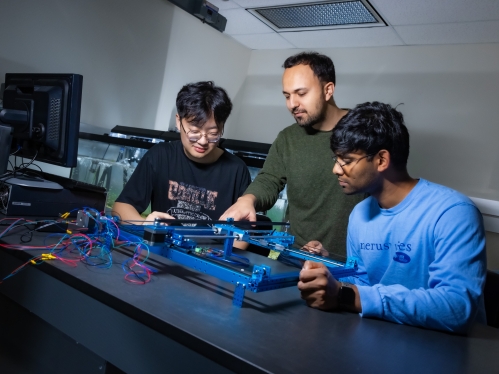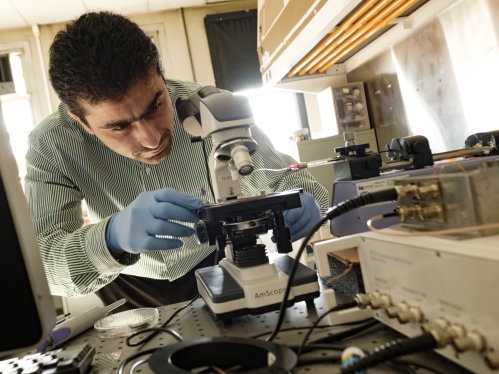Master of Science Degree
Degree Highlights
Rutgers School of Engineering’s Master of Science (MS) degree program in Electrical and Computer Engineering offers thesis and non-thesis options that provide outstanding graduate training for students who wish either to enter industry as practicing professionals or continue their studies at the doctoral level. Our program combines a robust curriculum with ample opportunities for research, practical training, and forging industry connections. This degree can be a pathway to our doctoral degree program.
All students must declare their intent to specialize in one of the areas:
- Communications
- Signal and Information Processing
- Machine Learning
- Systems and Controls
- Computer Engineering
- Software Engineering
- Electronic Devices, Circuits and Systems
Applied Learning
Our world-class faculty are actively engaged in research in areas ranging from wireless systems and virtual reality technologies to hardware and software engineering, signal processing, and machine learning. They will guide and mentor you through the research process, from problem formulation and publication in top-tier journals to filing patent applications and technology transfer.

MS Degree Requirements
- Non-thesis option: 30 credits as well as an essay/report that must be presented in public as a seminar
- Thesis option: 30 credits of course work, including 24 credits of coursework and 6 credits of thesis research leading to a master’s thesis and a final thesis defense



Your Application